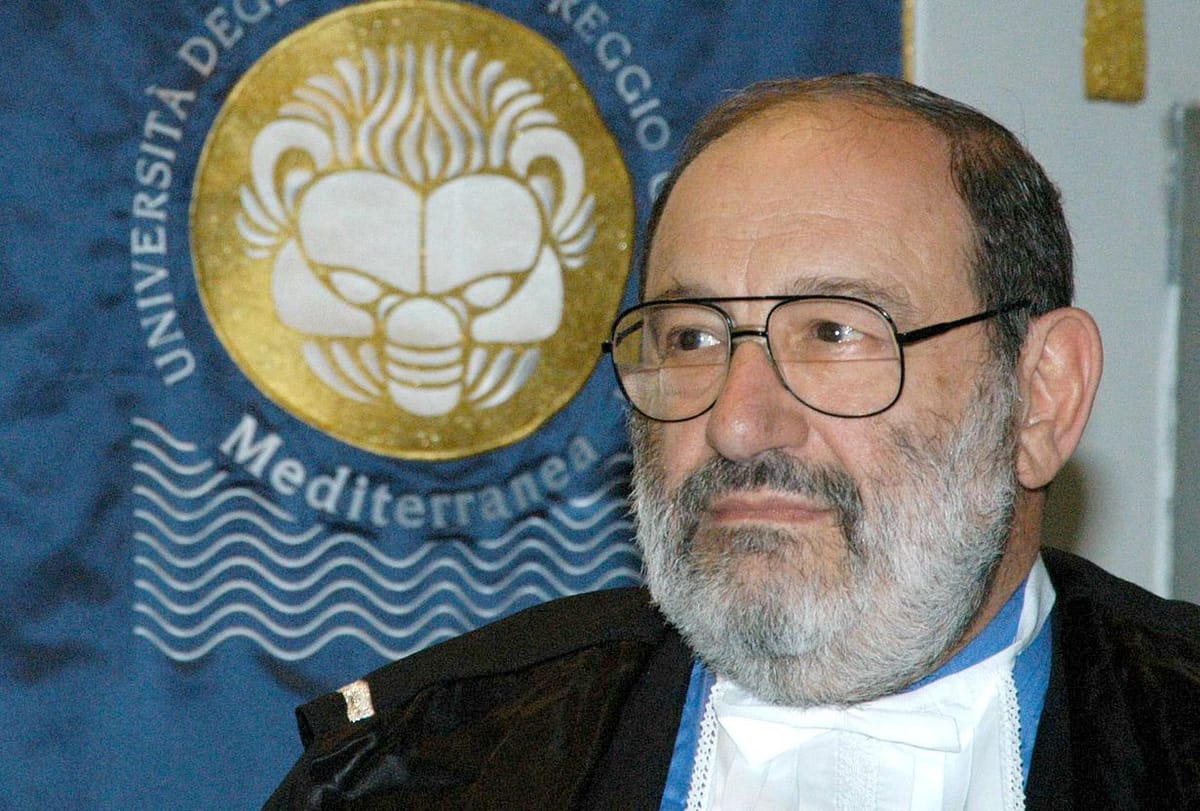Remembering the brilliance of Umberto Eco.
The great Italian novelist and semiotician left a huge mark on the intellectual world, and his work continued to be relevant 8 years after his death.

Eight years ago this coming week, on February 19, 2016, the world lost one of its most brilliant and interesting minds when Italian professor, semiotician and novelist Umberto Eco died at his home in Milan, Italy at the age of 84. I was genuinely in a funk for several days after the news came. The week it happened I ran a tribute article on my old blog, which was one of the very few obituaries I ever did in those days. Nearly a decade later I still think fondly of Eco, who was my all time favorite novelist. His stature has not diminished in the 8 years since his death. Indeed, some of his thinking has become more relevant than ever. For those reasons, I think it's appropriate to commemorate him.
I became a huge fan of Eco's work when I was in college, the first time I read his mind-blowing novel The Name of the Rose. Despite being an amazing novelist, Eco for me will always be associated with libraries, knowledge and learning, which he loved more than anything else in the world. Furthermore, he made those subjects exciting and infectious. His work got people excited about the mysteries of the past and the possibilities of human intelligence, consciousness and belief. Very few people in our modern world could have accomplished that, but Umberto Eco did. He was truly a Renaissance man for his times, and in a time, the late 20th and early 21st centuries, in which the very idea of a "Renaissance man" was somewhat anachronistic. But far from being stuck in the distant past, Eco's thinking also affects our present and future.


